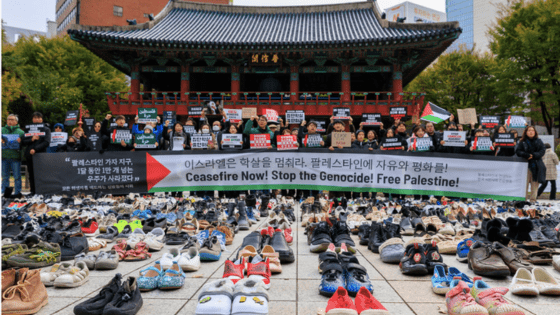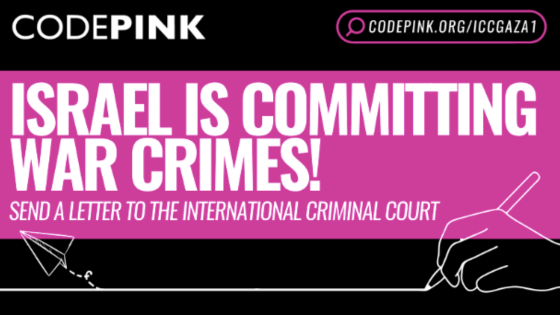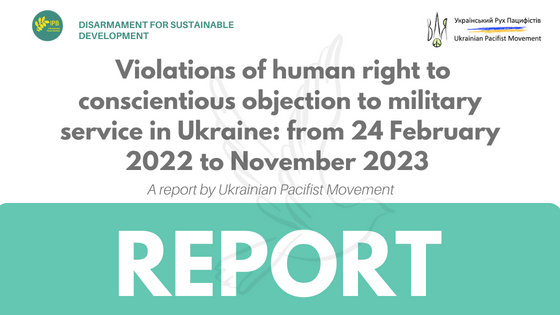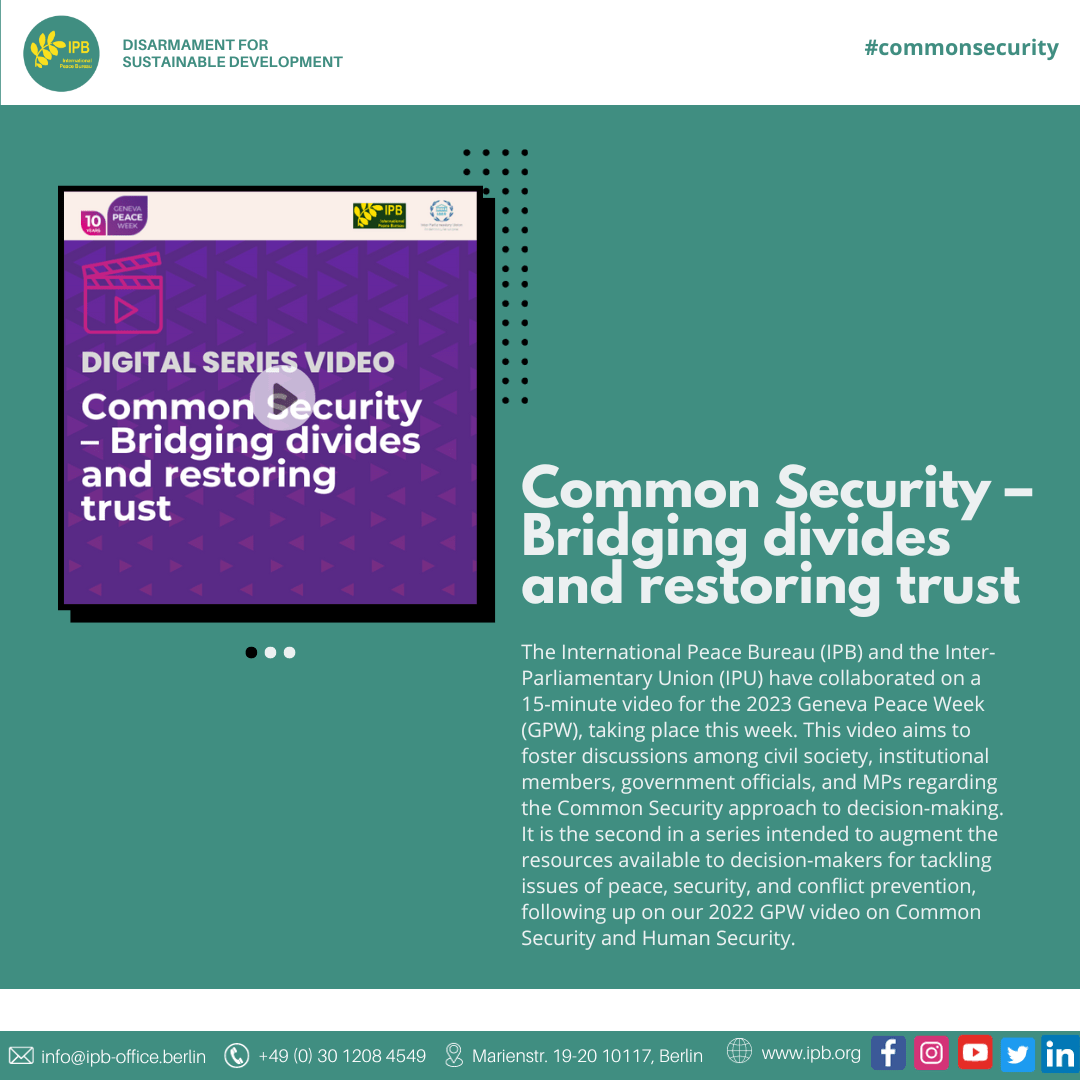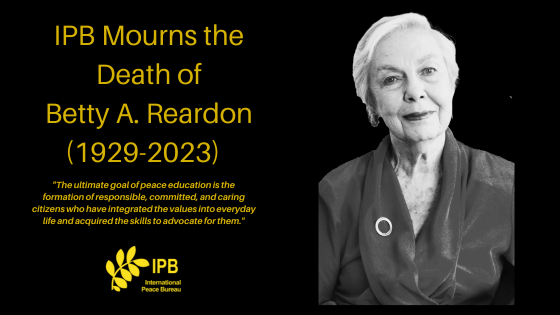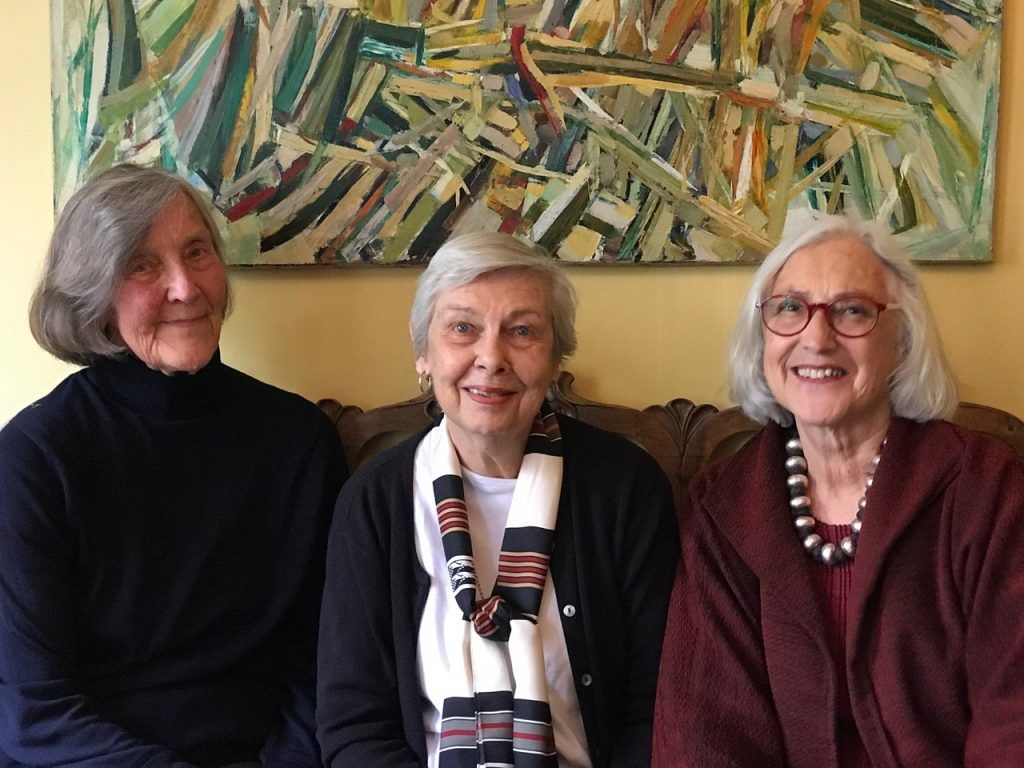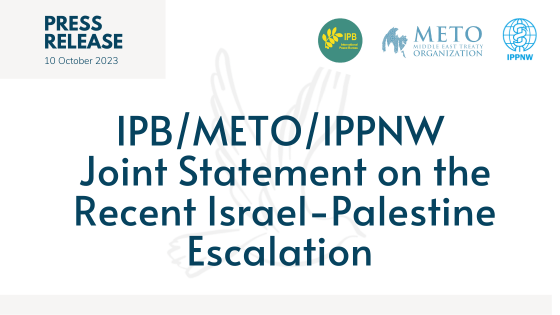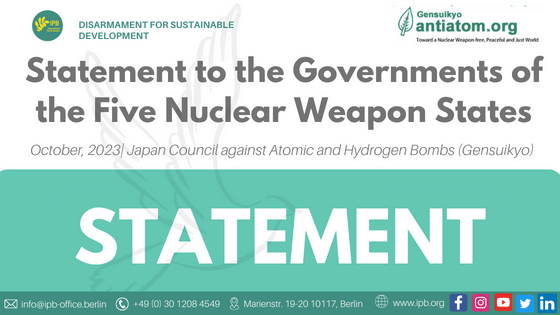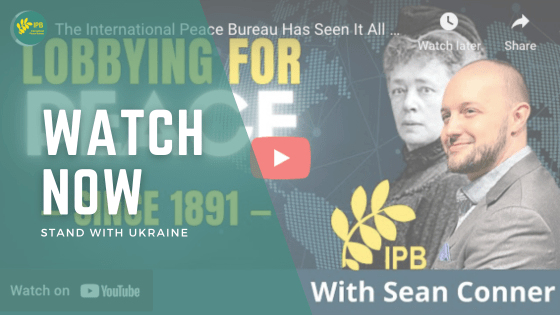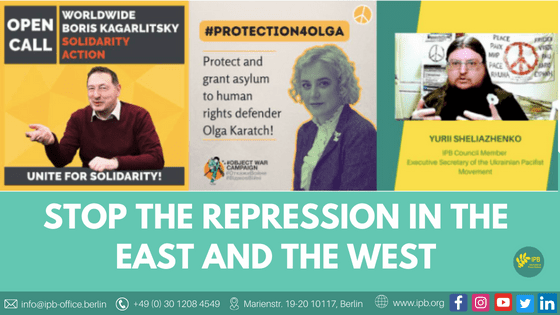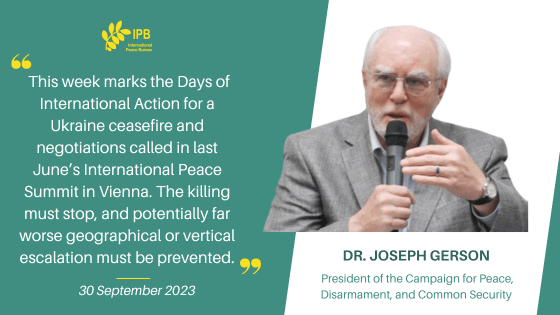30 September 2023, Berlin
During the opening of IPB’s Week of Global Mobilization for Peace in Ukraine (WGMPU) webinar, Dr. Joseph Gerson addressed the need to prevent nuclear escalation and the absence of arms control and strategic security diplomacy –
This week marks the Days of International Action for a Ukraine ceasefire and negotiations called in last June’s International Peace Summit in Vienna. The killing must stop, and potentially far worse geographical or vertical escalation must be prevented.
Recently Dr, Alexey Gromyko, the grandson of the longtime Soviet foreign minister and significant figure in the Russian establishment, addressed a German webinar. Two essential points stood out in his presentation.
First, this is the most dangerous moment in world history since 1962, when the U.S. and the Soviet Union went eyeball to eyeball during the Cuban Missile Crisis. Back then the Kennedy Administration believed the chances of an apocalyptic U.S.-Soviet nuclear war were between a third and a half. It was also the occasion for a series of miscalculations. Unknown to most then and now is that we were brought to the brink of annihilation when a mistaken nuclear launch order was sent to a U.S. missile base in Okinawa and when a nuclear armed Soviet submarine was attacked by depth charges in violation of Kennedy’s orders. We were saved by a courageous Russian submarine officer who opted to lose rather than use his nuclear tipped torpedoes and by a U.S. missileer who chose to ignore the mistaken Okinawan launch order. Those decisions, luck,, and inspired diplomacy which we lack today explain why we are still alive.
And again, today we are confronted by arrogant great power confrontations and the danger of nuclear annihilation.
Dr. Gromyko’s other point, which we needn’t love but must respect, helps to explain the urgency of today’s crisis. Victory in the Ukraine War is, he said, a “key national security interest of Russia”, and “no nuclear power can accept losing a military conflict.” Fortunately, at this stage in the war, unlike February 24, 2022, “victory” may consist of an armistice that leaves Moscow in control of Crimea and the devastated districts of Donetsk and Luhansk which it now occupies rather than the total defeat and functional elimination of the Ukrainian state.
The greatest danger we face would be if Kyiv threatened Moscow’s hold of Crimea, home to Moscow’s Black Sea fleet for almost three centuries. As one Russian general said in a track II exchange, if Crimea is threatened “All bets are off” in terms of Russian resort to its nuclear arsenal. The annexation of Crimea in 2014 violated the U.N. charter, but it was consistent with Russian history, with the current Russian empire’s perceived vital interests, and with popular support of the Russian identified majority there.
Sixty years ago, President Kenedy was prophetic when he advised that “while defending our own vital interests, nuclear powers must avert those confrontations which bring an adversary to a choice of either a humiliating retreat or a nuclear war. To adopt that kind of course in the nuclear age would be evidence only of the bankruptcy of our policy–or of a collective death-wish for the world.”
Regardless of rights and wrongs, NATO’s reckless expansion to Russia’s borders, the EU’s insistence that Kyiv sever all economic ties with Moscow to join the Economic Union, and Putin’s brutal preemptive and imperial invasion of Ukraine, the reality is that time is NOT on Ukraine’s side. And, as Tom Friedman wrote in the New York Times in the early days of the war, like it or not the war can only end with a “dirty deal.” Better now than later.
Which brings us to June’s International Peace Summit in Vienna and the urgent need for a ceasefire and negotiations.
We were more than 300 people from 32 countries, primarily from Europe, but also from the Global South and several from the U.S.. We were blessed with the courageous presence of Russian and Ukrainian peace advocates, at least one of whom is currently under house arrest for opposing the war. We certainly had our differences. Not least were those between the Italian labor and religious leaders who have organized the largest peace rallies to date, who played a major role in organizing the Vienna Peace Summit, and who wanted to limit demands to ceasefire and negotiations one side. On the other side were the U.S. Peace In Ukraine Coalition representative and others who initially insisted that the Summit’s call include condemnation of NATO imperialism and rejection of all arms transfers to Ukraine.
There was easy unity in condemning Russia’s invasion. And In the course respectful conversation fueled by the desperate appeal from Ukrainian and other delegates to stop the devastation and prevent escalation, and by the need for movement unity, conference organizers unified around our call for ceasefire, negotiations, and this week’s days of international actions.
Two striking memories persist. First was the shock of learning that pressure from the Ukrainian government on the Austrian labor union that hosted the summit had led to cancellation of the conference site two days before we foreign delegates descended on Vienna. Kyiv wanted to prevent the peace summit from happening. So much for Ukraine’s commitment to democracy!. An alternate was found.
Second was the excellent speech by the former U.S. colonel and diplomat Ann Wright. She cut through rhetoric and criticisms that a ceasefire will leave Russian aggression in place, reminding those assembled that it took more than 500 meetings over the better part of two years to achieve the now 70 year old, if still fragile, Korean Armistice. In that light, she stressed the urgent need for negotiations to begin progress toward a ceasefire now!
Before the war began, my hope was that diplomacy would prevent war and result in a neutral, non-NATO Ukraine, whose sovereignty, including the right to join the E.U, would be credibly guaranteed, perhaps by the United Nations. That was discussed in Track II diplomatic sessions, and it is still my hope.
I also believe that it is in Ukraine’s interest to discard its ten point “peace” demands. Crimea will not be returned to Ukraine in our lifetimes, if ever. That is simply a fact of life. This war is stalemated, and the sacrifice of thousands of Ukrainian warriors’ lives to regain a few villages is a fool’s errand that also risks catastrophic military – including nuclear – and geographic escalation of the war.
General Milley was correct when he warned that neither side can win this war militarily. Now, with its infinitely smaller economic and military production capacity, its much smaller population compounded by millions of its people refugeed across Europe, many of whom will never return to Ukraine, and with diminishing international support for a costly and endless war, it is in Ukraine’s national interest as well as ours to press for a ceasefire and negotiations.
President Zelensky does face threats to his rule, and maybe even his life, if he reduces his demands. This underscores the need for President Biden to stop allowing the Ukrainian tail from wagging the American dog. Biden should give Zelinsky cover by insisting on negotiations and a ceasefire. Bidden should be declaring that it’s time for multi-layered and integrated negotiations: Ukrainian-Russian, Russian-NATO, and U.S and-Russia.
This won’t be easy,. The Minsk accords and still secret Istanbul text are dead letters. Wars speed history and Russia’s invasion of Ukraine has crystalized the post-Cold War emergence of a new multipolar disorder. Finona Hill put it well when she said that Pax Americana is over. The U.S. is no longer able to almost unilaterally dictate the contours of the European order. It is in our interest, Ukraine’s, and the world’s for the U.S. to insist on a ceasefire, to move to negotiations, and to adjust U.S. policies to the new multipolar reality.
*Dr. Joseph Gerson is President of the Campaign for Peace, Disarmament, and Common Security. He participated in the June International Peace Summit in Vienna and has participated in U.S.-Russian-European track II diplomatic discussions. This article is based on a speech given to the Sept. 30 Boston Peace in Ukraine rally.
For more details about the Week of Global Mobilization for Peace in Ukraine (WGMPU): please visit – https://bit.ly/WGMPU

